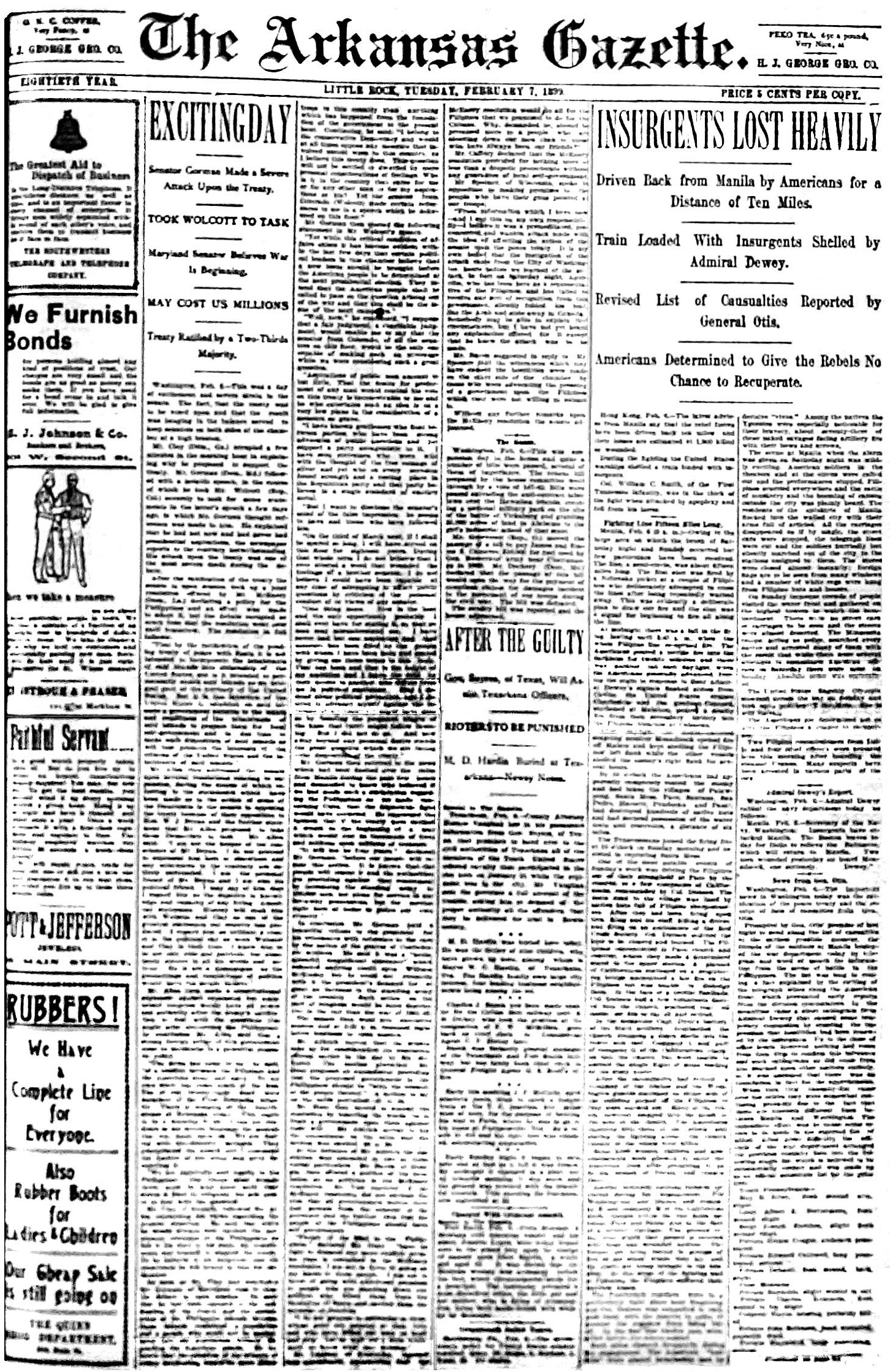
« 1899 »
On Feb. 6, 1899, The Treaty of Paris was ratified by the U.S. Senate amidst increasing concerns over how the country would interact with the Philippines, newly acquired by the United States under the treaty’s terms.
The treaty, signed by the United States and Spain in December 1898, officially ended the Spanish-American War and ceded the Spanish colonies of Guam, Puerto Rico, and the Philippines to the United States. The war led to Cuba becoming a protectorate of the U.S.
The Philippines, like Cuba, had been fighting for independence from Spain but instead traded Spanish control for American.
This Page 1 of the Feb. 7, 1899, edition of The Arkansas Gazette gives the particulars of the Senate debate over whether the treaty would bring the United States into an even more costly conflict, this time with the Philippines. Citing a recent Filipino attack on American soldiers, Democratic Sen. Arthur Pue Gorman of Maryland argued that ratification of the treaty would cause “the beginning of a war which would cost us thousands of lives and millions upon millions of treasure.” In the ensuing conflict with the Philippines, 10 times more American soldiers would die than died fighting against Spain.
Arkansas involvement in the war had been minimal, though two regiments of 1,000 volunteers each were mustered into service in May 1898 — the First Arkansas Volunteer Infantry under the leadership of Col. Elias Chandler and the Second Volunteer Infantry under Col. Virgil Cook. The war ended before either regiment was sent to Cuba and, except for one training accident, all Arkansas casualties were due to disease.
According to the Central Arkansas Library System Encyclopedia of Arkansas, the soldiers of the First Infantry returned to Arkansas and were mustered out Oct. 25, 1898, but the soldiers of the Second were moved to Camp Shipp in Anniston, Ala., around the same time the men of the First were sent home. The soldiers of the Second weren’t officially mustered out of the service until Feb. 25, 1899.
Though conflict remained in the Philippines, the close of the war with Spain seemed to signal a new era in the United States. The Encyclopedia of Arkansas notes that an “interesting effect” of the war was the lessening of tensions that remained between North and South after the Civil War. “The Spanish-American War was a major opportunity for citizens of the former Confederacy to show loyalty to the Union. In the Second Arkansas Volunteer Infantry alone, ninety-six percent of the men were descendants of Confederate veterans.”
— Jeanne Lewis
You can download a PDF by clicking the image, or by clicking here.
